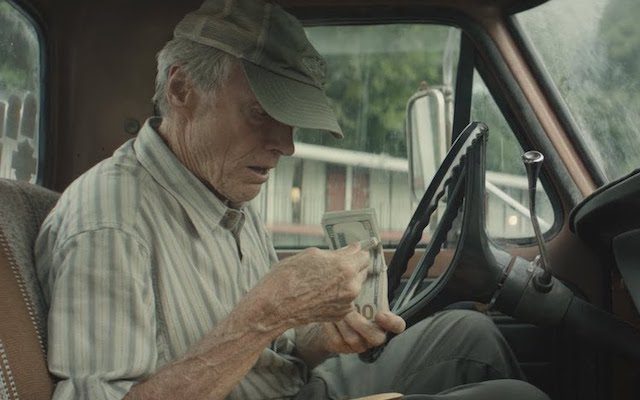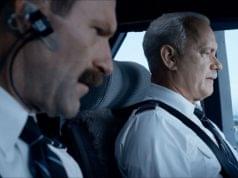
Clint Eastwood’s 37th directorial effort, “The Mule,” has all the hallmarks of an Eastwood enterprise — unfussy direction, efficient but unhurried, moderately entertaining but nothing special — and is, like most of his work this century, loosely based on a true story. I say “loosely” because unlike the movie character, the real guy seems to have had some kind of inner monologue and was probably a more compelling figure than Eastwood’s two-dimensional geezer.
Eastwood plays Earl Stone, a successful Illinois horticulturalist and failed family man who is beloved by the flower community and the Mexican gardeners with whom he exchanges jovial insults (in Spanish, signifying they’re friendly barbs), loathed by his ex-wife (Dianne Wiest) and daughter (Alison Eastwood), loved by (but on thin ice with) his granddaughter (Taissa Farmiga). It’s not clear what his business is, but it involves hybrid plants, and it goes under because of internet competition (“Internet, who needs it?” is one of his first lines in the movie, lest there be any confusion over who the target audience is).
Tipped off by a friend of the granddaughter about a chance to earn money “just by driving,” Earl is soon earning cash by transporting bags of drugs in his pickup truck from their entry point in El Paso back up to the Chicago area. His points of contact are scary-looking Mexican dudes whom he’s soon glad-handing, asking about their nephews, and so forth; to them, he’s a reliable novelty who completes his runs on time and never gets stopped by police. They don’t say, “Here is a bag of drugs,” of course, and he knows not to look inside or ask questions. But on the third or fourth run, when he finally does look in the bag and sees bricks of cocaine, he is … surprised. “Oh, s***,” he growls. Well, what did he THINK he was delivering? Is it just the quantity of drugs that alarms him? Is he alarmed? Because he doesn’t second-guess his choices after this discovery, never feels any internal conflict over what he’s doing.
That’s the baffling thing about the movie. How do you tell the story of an octogenarian who becomes a drug mule without ever asking what he was thinking? He needs cash to avoid losing his house, but it’s all gravy after that. He even goes to Mexico and meets the head of the cartel (Andy Garcia) at his lavish hacienda, asking, “Who do you have to kill to get a place like this?” (The kingpin’s reply: “Oh, many, many people.”) It’s not ambiguous what Earl is doing, yet Earl seems to have no thoughts about it one way or the other. How does a war veteran and upstanding citizen rationalize breaking the law? The screenplay, by Nick Schenk (“Gran Torino”), doesn’t even think to ask the question.
There’s another very strange moment when he stops to assist some stranded motorists who happen to be black. When he cheerfully congratulates himself for “helping Negroes,” they politely but firmly let him know that “Negroes” is no longer the preferred term … and he is surprised. Delighted, even, to be learning a new fact. Where has he been for the last 50 years? And what is the point of the scene? That even though he’s old and kind of racist he’s still nice? What does that have to do with anything?
I realize that non-introspective characters are another Eastwood hallmark, but it’s a liability when there’s so little else to hang the movie on. DEA agents played by Bradley Cooper and Michael Peña are closing in, but Eastwood makes little effort to find any suspense in it. While there’s something worthwhile in Earl’s belated realization that he neglected his family for years and his desire to make up for that now, that happens in the background. In the foreground? A likable old coot just amblin’ around the country, singing along with songs on the radio, complaining about the internet and cellphones, being folksily racist, working for murderers, not a care in the world. Some senior citizens take up painting in their twilight years; Eastwood makes weird, mediocre movies to keep himself busy. Good for him, I guess.
C+ (1 hr., 56 min.; )





